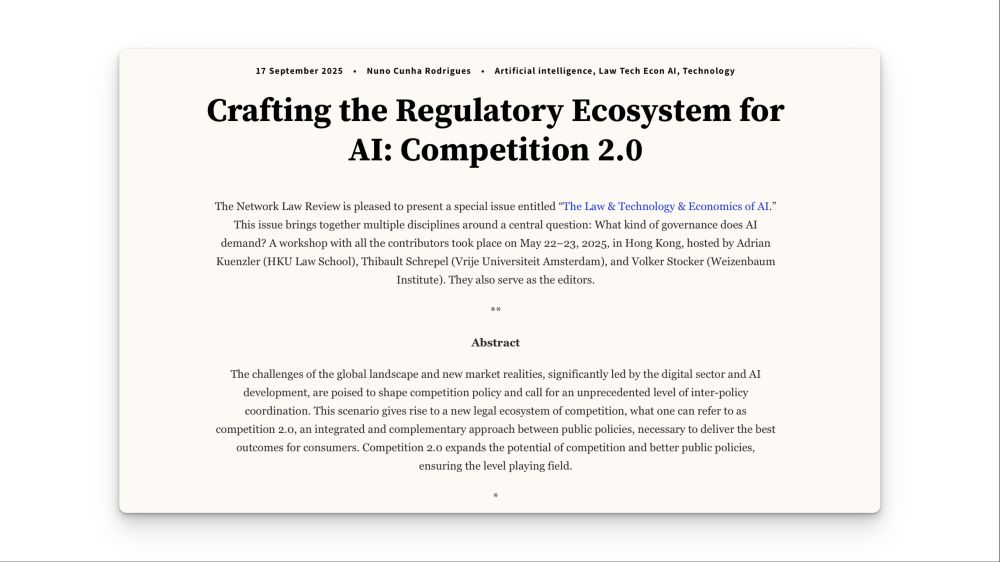Reposted by: Thibault Schrepel


Interesting one. Market power persistence isn’t about lax antitrust enforcement. It’s the technology + learning dynamics that give certain cohorts lasting dominance.

Reposted by: Thibault Schrepel

The AI Act multiplies review clauses, delegated acts, monitoring obligations. But it lacks true adaptive capacity. In complexity science terms, the EU has built “sensors without reflexes.”
I hope this resonates with colleagues working on AI governance.
Reposted by: Thibault Schrepel

Reposted by: Thibault Schrepel

👉 Read the full piece: www.lesechos.fr/idees-debats...


Using computational text analysis, Sean Norick Long (@georgetownlaw.bsky.social) shows how Lina Khan reshaped antitrust beyond consumer welfare toward workers, power, and a more moralized public debate.
Link: law.stanford.edu/codex-the-st...



In a word: computational antitrust is here! At the OECD, agencies shared how they’re building tools, infrastructures & teams to enforce law with code. The frontier isn’t adoption, it’s integration!

In short: if you can, start running!

Reposted by: Thibault Schrepel
He argues that AI disruption demands a new regulatory ecosystem where competition law works hand in hand with other public policies www.networklawreview.org/cunha-rodrig...


www.altalex.com/documents/ne... 🤗 (the experiment: papers.ssrn.com/sol3/papers....)







